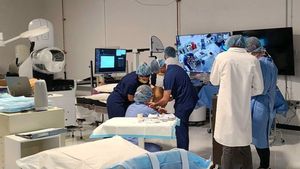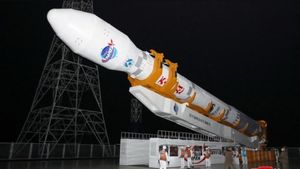JAKARTA – Astronomers from the University of Nottingham discovered 1.5 trillion orphan stars using the Euclid Space Telescope. Trillions of these stars are found scattered in the Perseus galaxy cluster.
Orphan stars are the term for stars that are separated from their parents, but are still tied to the galaxy where they are located. Stars that fall into this category will continue to wander in space without direction or purpose.
Astronomers also predicted that orphan stars that escape from their home galaxy will be dragged into other, larger galaxies. However, what happened was just the opposite. These stars remain floating outside the galaxy.
After examining data from the Euclid telescope, astronomers were surprised to find a faint light that was outside the galaxy and drifting between two galaxies. Apparently, this faint light is an orphan star that escaped from its galaxy.
Nina Hatch, the professor who led the research group, and her colleagues initially thought that the faint light they discovered was dark matter. They only realized that the light came from stars after further study.
“This light helps us map dark matter if we understand where intra-cluster stars come from. "By studying their color, luminosity, and configuration, we found that they came from small galaxies," Hatch said.
SEE ALSO:
This is an unusual finding, but interesting to observe. After extensive research, Hatch and his colleagues realized that this parentless star was circling a point between the galaxies NG 1275 and 1272.
Meanwhile, Astronomer Jesse Golden-Marx said that observations using Euclid's data showed that the Perseus cluster was merging with another group of galaxies. Therefore, gravity is disturbed.
"Recent mergers can cause gravitational perturbations, causing the most massive galaxies or orphan stars to deviate from their expected orbits, thereby resulting in the observed misalignment," explains Marx.
The English, Chinese, Japanese, Arabic, and French versions are automatically generated by the AI. So there may still be inaccuracies in translating, please always see Indonesian as our main language. (system supported by DigitalSiber.id)


















